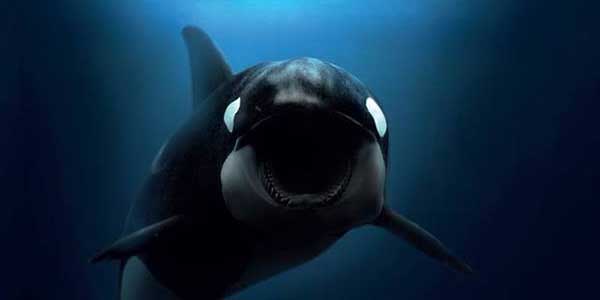Blackfish Has Caused Sea World's Profits To Completely Crash

Your Daily Blend of Entertainment News
You are now subscribed
Your newsletter sign-up was successful
It was around this time last year that Sea World finally admitted that the documentary Blackfish hurt their ticket sales. Well, it turns out that the hurt still isn't over for the theme park, as new reports say that the company's profits have dropped 84 percent.
The Guardian has the details about this news, reporting based off of a second quarter earnings report that SeaWorld Entertainment, Inc. recently published. According to the numbers, the company made $37.3 million during the same quarter in 2014, but only managed to make $5.8 million this year. It's also noted that revenue fell from $405 million to $392 million - and attendance has fallen off by more than 100,000. All in all, this is extremely bad news for the park, and many of the issues can be traced back to director Gabriela Cowperthwaite's 2013 documentary Blackfish.
For those unfamiliar with the documentary, Blackfish first premiered at the Sundance Film Festival and revealed some very dark and unknown truths about what goes on at SeaWorld parks, and how the animals are mistreated - particularly by being kept in swimming pools that are far too small. Featuring interviews with former employees, the central focus of the film is a killer whale named Tilikum, who wound up killing three individuals at the park as a result of lashing out against his captivity. You can get a sense of what it's all about with the trailer below, but you should prepare to experience a very heavy heart after you watch it..
In The Guardian piece, it's noted that the next earnings report for SeaWorld will be a very important one, as it covers what is usually the most popular season for the aquatic theme park. But the effects of Blackfish are still taking their toll. The company is also shooting itself in the foot a bit, as it was recently revealed that they had an employee go undercover and infiltrate the ranks of an animal rights group protesting against them.
There are some politicians who are working to enact laws that would outlaw the captivity and public display of orca whales, but at the rate things are going that may not even be necessary. If things keep going the way they are, it may not be long before SeaWorld has to close its doors for good and release all of the animals. It's tremendous proof just how much impact a movie can have on society, and be used as a means of causing change.
Your Daily Blend of Entertainment News

Eric Eisenberg is the Assistant Managing Editor at CinemaBlend. After graduating Boston University and earning a bachelor’s degree in journalism, he took a part-time job as a staff writer for CinemaBlend, and after six months was offered the opportunity to move to Los Angeles and take on a newly created West Coast Editor position. Over a decade later, he's continuing to advance his interests and expertise. In addition to conducting filmmaker interviews and contributing to the news and feature content of the site, Eric also oversees the Movie Reviews section, writes the the weekend box office report (published Sundays), and is the site's resident Stephen King expert. He has two King-related columns.
